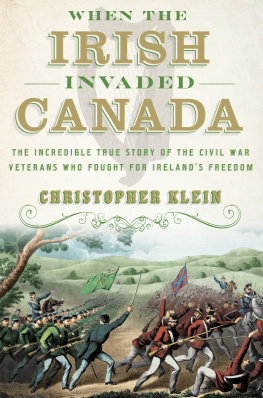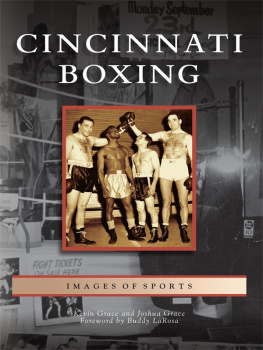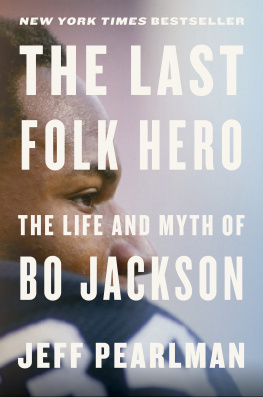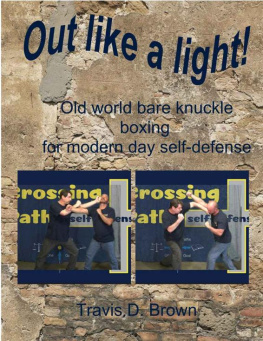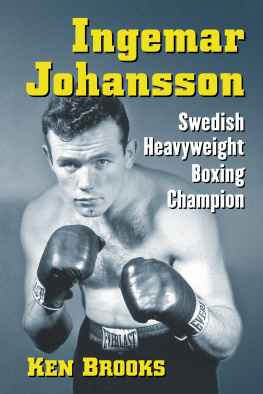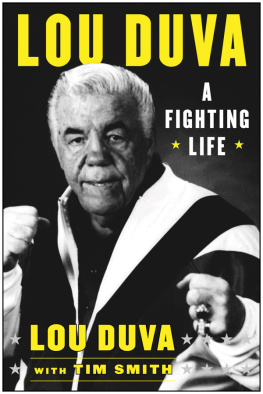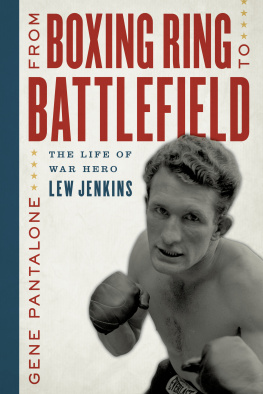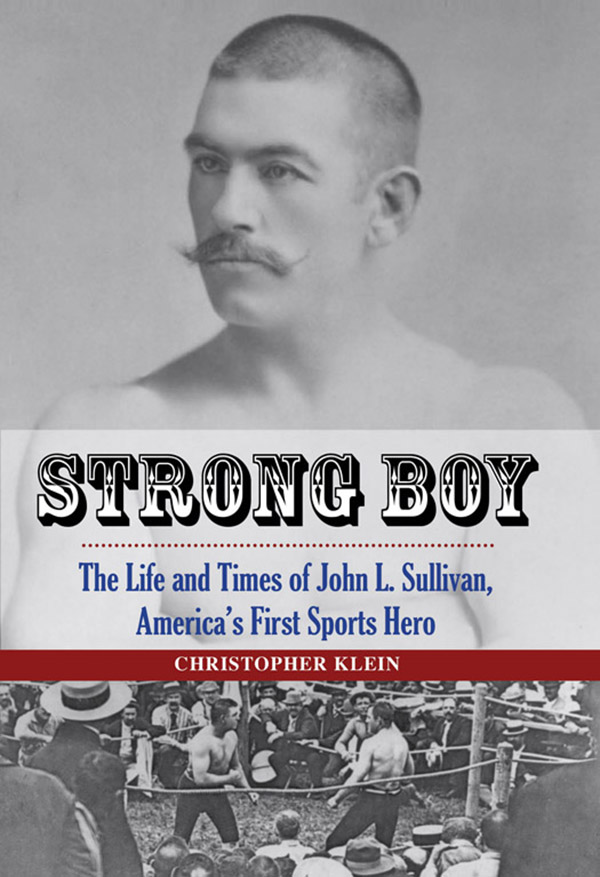Christopher Kleins Strong Boy is a well-researched look at a forgotten hero: modern boxings first heavyweight champion. Its a go-to resource on John L. Sullivans personal life, his ring career, and the era in which he thrived. For all the talk about the man who beat the man, heres a work that documents the man himself.
Sports biography at its best. Rich in period detail, anecdote, and fresh perspective, Strong Boy paints both the good and the bad sides of success, as Americas growing celebrity culture turned a simple Irish-American gladiator into a national, in fact international hero. A very human story with profound parallels for our sports-obsessed culture today!
Nigel Hamilton, author of Biography: A Brief History and The Mantle of Command: FDR at War, 19411942
This admirable biography has a Citizen Kane feel to it: Strong Boy both celebrates John L. Sullivan as a sports hero and lights up the pathos of Sullivan the man-child. If he could lick any son-of-a bitch in the world, John L. could out-drink and out-eat all contenders. The first million-dollar man in sports died broke. Christopher Klein does justice to the legend, the man, and the times.
Jack Beatty, author of The Rascal King: The Life and Times of James Michael Curley, 18741958
The Life and Times of John L. Sullivan,
Americas First Sports Hero

LYONS PRESS
Guilford, Connecticut
An imprint of Globe Pequot Press
Copyright 2013 by Christopher Klein
ALL RIGHTS RESERVED. No part of this book may be reproduced or transmitted in any form by any means, electronic or mechanical, including photocopying and recording, or by any information storage and retrieval system, except as may be expressly permitted in writing from the publisher. Requests for permission should be addressed to Globe Pequot Press, Attn: Rights and Permissions Department, PO Box 480, Guilford, CT 06437.
Lyons Press is an imprint of Globe Pequot Press.
Project Editor: Lauren Brancato
Layout Artist: Mary Ballachino
Library of Congress Cataloging-in-Publication Data is available on file.
ISBN 978-0-7627-8152-2
Printed in the United States of America
E-ISBN 978-1-4930-0197-2
To the memory of Martin, Krystle, Sean, and Lingzi,
and to the citizens of the greatest city in the world
who remain Boston Strong.
PROLOGUE: RUMBLE ON THE RIVER
The most wicked men in New York City skimmed along the surface of the Hudson River. With the sun safely tucked beneath the horizon on the night of May 16, 1881, a tug hauled a barge laden with an unsavory cargo of pickpockets, gamblers, swindlers, drinkers, and drifters. Past the waterfronts forest of rocking masts, the motley menagerie crept up the liquid highway on a nefarious moonlight excursion.
As they nervously scanned the river for waterborne police, the four hundred outlaws bathed in the reflected glitter of Americas greatest metropolis. On shore and under the yellow glare of Manhattans gaslights, black-bonneted ladies in pinched corsets and cigar-chomping gentlemen with finely waxed mustaches and silk top hats promenaded to Broadway theaters. Sparkling carriages and hansom cabs rattled over a carpet of cobblestones past the Fifth Avenue palaces of the countrys merchant princes. Beneath Delmonicos silver chandeliers and frescoed ceilings, the citys power brokers feasted on oysters and champagne as they peered out at the disembodied arm of the Statue of Liberty lifting its torch above Madison Square Park, a nagging reminder that the pedestal for the copper colossus remained unbuilt.
Behind New Yorks refined facade throbbed the Gilded Ages tarnished underbelly. Manhattan was an island of unadulterated deviltry with infernal-sounding neighborhoods like Hells Half Acre and Satans Circus.
No city in the United States offered such an exquisite carnival of depravity. Inside New Yorks saloons and concert halls, patrons imbibed whiskey while their lascivious eyes drank in the dancing girls who flashed their thighs and sang bawdy tunes. Wealthy men carried published directories of the citys high-end brothels in the vest pockets of their double-breasted suits, but few directions were needed to locate any of the fifteen thousand prostitutes who infested the streets. Roulette wheels clattered inside gambling dens that literally operated in the shadows of police stations polluted with corruption. Crime flourished in a city teeming with disgusting displays of wealth and more appalling exhibitions of poverty.
Manhattan was one enormous red-light district, but there was a particular sin so taboo that it had been exiled from the island of viceprizefighting. Boxing matches were primal affairs, savage human cockfights rife with bare-knuckle brawling, wrestling, biting, hair pulling, and eye gouging. In an 1879 championship bout, one slugger even poured turpentine on his hands to blind his opponent.
Prizefightings brutality repulsed genteel Victorian elites, but not as much as the unscrupulous working-class fans the sport attracted. Boxing was a pillar of urban street culture, a popular pastime with immigrants, particularly the Irish, thirsty for blood and booze. Gambling saturated the sport. Clashes among knife- and pistol-wielding spectators often caused more violence than the gladiators inside the ring.
The savagery, corruption, and gambling endemic to prizefighting roamed so far beyond the bounds of Victorian-era sensibilities that most American jurisdictions outlawed the sport. Government, however, could not legislate away bloodlust. Brawlers and fans engaged in elaborate cat-and-mouse dances with the police and often found refuge in remote locations such as islands, backwoods, and cow pastures.
The scheming matchmakers who had secured the barge that now beat against the current of the Hudson River were sailing the sport into uncharted waters by choosing a battleground that lacked any ground whatsoever. Under the cover of darkness, the tugboat continued to urge the unlit barge upriver. Once they reached the tip of Manhattan at Spuyten Duyvil Creek (Dutch for Spouting Devil), the men ignited oil-soaked torches, backed by reflectors to prevent their being spotted from shore, and pitched the twenty-four-foot ring on the barge deck.
Despite their best efforts at secrecy, reports filtered back to the Twenty-Second Precinct that a large group of sporting men had slipped away from the pier at the foot of West Forty-Third Street a little after 9 p.m., most likely bound for a nearby island to stage a prizefight. The harbor police received orders to locate the suspicious barge.
In the hopes of confusing any pursuing lawmen about which jurisdiction they would sully, the fight contingents tug straddled the watery state line between New York and New Jersey. Finally, ten miles upriver, they halted near the New York suburb of Yonkers, and an anchor struck the murky midstream bed of the Hudson.
In the dimly lit reaches of the ring, a hulking figure with blankets draped over his broad shoulders sat huddled on a campstool. John L. Sullivan shivered lightly as he listened to the Hudson lap against the barge and felt the river roll softly beneath his feet. He breathed in the cool west breezes, fragrant with grass and trees, that dissipated the fumes of whiskey and cigars hovering over the barge.


